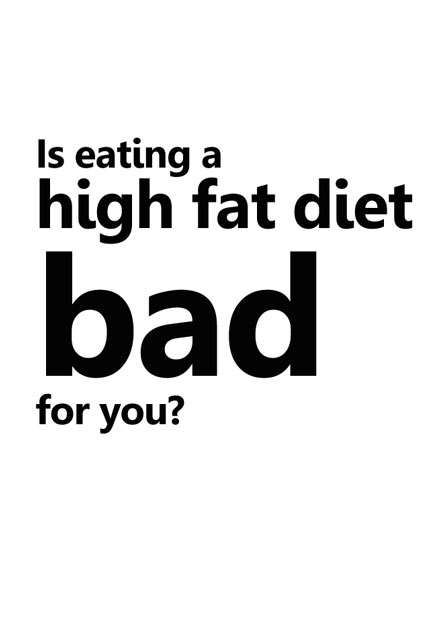
References
"89,538 U.S. registered nurses ...These data .. suggest... that a moderate reduction in fat intake by adult women is unlikely to result in a substantial reduction in the incidence of breast cancer." Nurses' Health Study: Willett et al, Dietary Fat and the Risk of Breast Cancer, N Engl J Med 1987; 316:22-28
"...sample of 5,485 women, including 99 breast cancer cases .. No significant differences in dietary fat intake between cases and non-cases were evident ... This prospective study ...does not support the hypothesis that high dietary fat intake increases breast cancer risk. Indeed, some lower risk associated with high fat intake may be indicated" NCI Study: Jones et al, Dietary Fat and Breast Cancer in the National Health and Nutrition Examination Survey I Epidemiologic Follow-up Study, JNCI J Natl Cancer Inst (1987) 79 (3): 465-471.
"A randomized, controlled, primary prevention trial conducted ... from 1993 to 2005...of 48,835 postmenopausal women, without prior breast cancer...Women were randomly assigned to the dietary modification intervention group... or the comparison group . The intervention ... reducing intake of total fat to 20% of energy and increasing consumption of vegetables and fruit to at least 5 servings daily and grains to at least 6 servings daily. Comparison group participants were not asked to make dietary changes...Dietary fat intake was significantly lower in the dietary modification intervention group ... a low-fat dietary pattern did not result in a statistically significant reduction in invasive breast cancer risk over an 8.1-year average follow-up period." Women's Health Initiative: Prentice RL, et al. Low-fat dietary pattern and risk of invasive breast cancer: the Women’s Health Initiative Randomized Controlled Dietary Modification Trial. JAMA. 2006; 295:629-42.
"...since .. 1958 .. monitored in men aged 40–64 in a Japanese ... farming town ... large increases ... in fat intake (from 5% to 22%)... Age-adjusted death rate from all causes declined from 17.6 to 7.4/1000 per year. Stroke mortality declined dramatically from 4.6 to 0.8/1000 per year, while no appreciable change occurred in the death rate from myocardial infarction ... or sudden deaths ... Stroke incidence declined from 6.7 to 4.4/1000 per year." Japan: Koga et al, Recent Trends in Cardiovascular Disease and Risk Factors in the Seven Countries Study: Japan, Springer Link, 1994, pp 63-74
"...the Sydney Diet Heart Study, a single blinded, parallel group, randomized controlled trial conducted [over 7 years] ... 458 men aged 30-59 years with a recent coronary event... Replacement of dietary saturated fats (from animal fats, common margarines, and shortenings) with omega 6 linoleic acid (from safflower oil and safflower oil polyunsaturated margarine). Controls received no specific dietary instruction ...[The intervention group had] increased the rates of death from all causes, coronary heart disease, and cardiovascular disease. These findings could have important implications for worldwide dietary advice to substitute omega 6 linoleic acid, or polyunsaturated fats in general, for saturated fats." Sydney Diet Heart Study: Ramsden et al, Use of dietary linoleic acid for secondary prevention of coronary heart disease and death: evaluation of recovered data from the Sydney Diet Heart Study and updated meta-analysis, BMJ 2013;346:e8707
"A systematic review and meta-analysis were carried out to study the effects of low-carbohydrate diet ... on weight loss and cardiovascular risk factors ... Meta-analysis carried out on data obtained in 1,141 obese patients, showed the [Low Carb Diet] to be associated with significant decreases in body weight ..., body mass index ..., abdominal circumference ..., systolic blood pressure ..., diastolic blood pressure ..., plasma triglycerides ..., fasting plasma glucose ..., glycated haemoglobin ..., plasma insulin ... and plasma C-reactive protein, as well as an increase in high-density lipoprotein cholesterol ... Low-density lipoprotein cholesterol and creatinine did not change significantly." Santos et al, 2012, Systematic review and meta-analysis of clinical trials of the effects of low carbohydrate diets on cardiovascular risk factors, Obesity Reviews Vol 13, Iss 11, pages 1048–1066, Nov 12
"..review the data on the relationship between the consumption of dairy fat and high-fat dairy foods, obesity, and cardiometabolic disease...In 11 of 16 studies, high-fat dairy intake was inversely associated with measures of adiposity. Studies examining the relationship between high-fat dairy consumption and metabolic health reported either an inverse or no association. Studies investigating the connection between high-fat dairy intake and diabetes or cardiovascular disease incidence were inconsistent." Kratz, M., Baars, T., & Guyenet, S. (2013). The relationship between high-fat dairy consumption and obesity, cardiovascular, and metabolic disease. European journal of nutrition, 52(1), 1–24. doi:10.1007/s00394-012-0418-1











